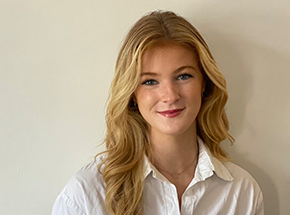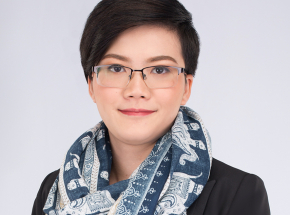- About AUP
- History of AUP
- Mission & Core Values
- Vision and Leadership
- AUP Recognition
- Alumni Success
- Campus Development
- Arts at AUP
- Policies & Guidelines
- Academics
- Undergraduate
- Graduate Programs
- MA in Diplomacy and International Law
- MA in Global Communications
- MSc in Human Rights and Data Science
- MA in International Affairs
- MA in International Affairs, Conflict Resolution, and Civil Society Development
- MSc in International Management
- MSc in Strategic Brand Management
- Find Your Thesis Advisor
- Previous Programs
- Cultural Program
- Faculty
- Summer School
- Research Centers
- The Center for Critical Democracy Studies
- The Center for Writers and Translators
- The George and Irina Schaeffer Center for the Study of Genocide, Human Rights and Conflict Prevention
- The Joy and Edward Frieman Environmental Science Center
- The Center for Media, Communication & Global Change
- Departments
- Academic Resources
- Academic Affairs
- Academic Calendar
- Academic Resource Center
- Library
- Registrar's Office
- Teaching and Learning Center
- Employer Network
- Accessibility & Accommodation Services
- Quai D'Orsay Learning Commons
- Paris as Classroom
- ACE Center
- Admissions
- Student Life
- Campus
- Get Involved
- Paris
- Support Services
- Student Development Help Desk
- Student Accounting Services
- Student Immigration Services
- Student Grievance Procedure
- Accessibility at AUP
- Diversity and Inclusion
- Health & Well-being
- Digital Student Handbook
- News
- Events
- AUP Giving
- Housing Offer for 2024-2025
- Housing | Spring 2024
- IRIS Project
- IT Services
- Alumni
- About AUP
- History of AUP
- Mission & Core Values
- Vision and Leadership
- AUP Recognition
- Alumni Success
- Campus Development
- Arts at AUP
- Policies & Guidelines
- Academics
- Undergraduate
- Graduate Programs
- MA in Diplomacy and International Law
- MA in Global Communications
- MSc in Human Rights and Data Science
- MA in International Affairs
- MA in International Affairs, Conflict Resolution, and Civil Society Development
- MSc in International Management
- MSc in Strategic Brand Management
- Find Your Thesis Advisor
- Previous Programs
- Cultural Program
- Faculty
- Summer School
- Research Centers
- The Center for Critical Democracy Studies
- The Center for Writers and Translators
- The George and Irina Schaeffer Center for the Study of Genocide, Human Rights and Conflict Prevention
- The Joy and Edward Frieman Environmental Science Center
- The Center for Media, Communication & Global Change
- Departments
- Academic Resources
- Academic Affairs
- Academic Calendar
- Academic Resource Center
- Library
- Registrar's Office
- Teaching and Learning Center
- Employer Network
- Accessibility & Accommodation Services
- Quai D'Orsay Learning Commons
- Paris as Classroom
- ACE Center
- Admissions
- Student Life
- Campus
- Get Involved
- Paris
- Support Services
- Health & Well-being
- Digital Student Handbook
- News
- Events
- AUP Giving
- Housing Offer for 2024-2025
- Housing | Spring 2024
- IRIS Project
- IT Services
- Alumni
Student
What made you choose to study for a master’s at AUP?
I did my undergraduate studies here, majoring in international and comparative politics, and I chose the MSc in Human Rights and Data Science as part of a combined BA/MA program. I was drawn to the uniqueness and innovation of HRDS. The opportunity to start classes and begin checking off requirements during my undergraduate studies was also very appealing.
What particularly appealed about HRDS?
The program’s openness and flexibility allowed me to focus on a specific topic of interest: political structures and democratic governance. I looked at how the digital transition and technological development impact governance challenges, asking how we can continue to build systems that are fair, equitable and functional.
How did you find the balance between the programs two disciplines?
I like the ability to think in both the policy and scientific landscapes. It’s fascinating to interact with two distinct groups of people: data scientists and social scientists. We had a great mix in our program. Some people had much more experience in the technical side, while others had a social science focus. It was a fun dynamic; I learned how important it is to have multiple perspectives in the room when navigating the digital transition.
Why is that multiplicity so necessary?
One of the biggest struggles we have right now is that policymakers don’t always understand how to engage with the tech sector. Having people who can translate between technical processes and policymakers has a big impact. Equally, developers need to have an interest in how technological systems affect society. People who can both innovate on technology and talk like a policy advocate will have the capacity to decide how society develops over the next 15 years.
Was there a particular highlight of the program for you?
In December 2022, I went with Professor Claudia Roda to present a paper on digital Tocquevillianism at a conference in Belgrade: the EMERGE Forum on the Future of AI-Driven Humanity and the International Scientific Conference on Digital Society Now. I was one of only three nonprofessionals to present at EMERGE. I got great feedback on my work and learned a lot about engaging with the right kind of audience. It gave me the confidence I needed to pursue my next step.
Which is a doctorate?
Yes. The program gave me a sense of how to bring policy and technical considerations under one umbrella, which showed me the value of my proposed thesis topic. Traditional ideas of democracy have long overlooked the digital side; I want to look at democratic legitimacy in France and the United States in the context of digital data practices, which include the usage, collection, manipulation and presentation of personally identifying data.
Related
-

Professor Roda
Faculty
Read MoreProfessor Roda
Faculty
“By looking at both ethical and technical questions surrounding data science, our graduates will be able to take a proactive stand in the multistakeholder...
-

Anna Ferguson
Student
Read MoreAnna Ferguson
Student
Reflections from a current HRDS student.
-

Alex Phuong Nguyen G’12
Alumna
Read MoreAlex Phuong Nguyen G’12
Alumna
"Human rights and data science create a fascinating intersection. My advice for those entering the field is to be adaptable to different kinds of work....
